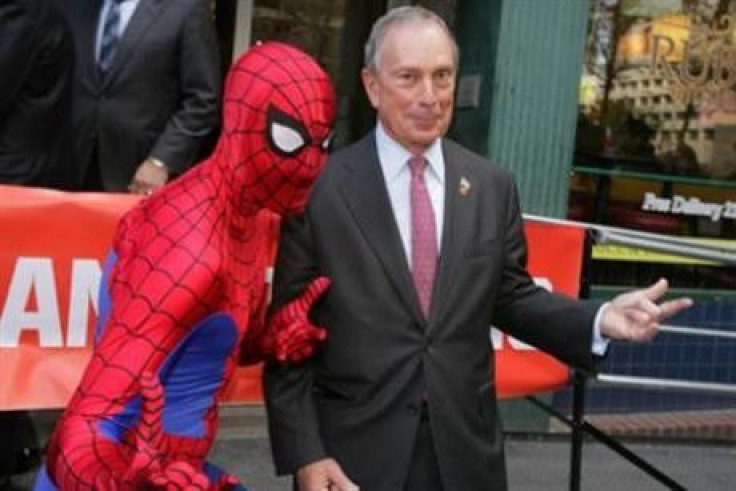Why are US companies reluctant to start hiring?

U.S. companies are turning profitable again, they have stockpiles of cash and the economy is teetering on its new 'recovery' legs as the government pumps in billions of dollars trying to keep it afloat. Yet, the one thing that is crucial to the recovery is not happening - job creation - as companies remain reluctant to hire.
This worrisome reluctance even prompted U.S. President to hold a meeting with several top chief executives on Thursday to urge them to start hiring more people.
Unemployment rate in the U.S. remains close to 10 percent, affecting all factors that could have a chance of growing well - consumer confidence and spending.
Strong indicators over in the middle of the year gave people some confidence to invest and even make some more holiday purchases this season. Companies are definitely seeing profits and an increase in their cash reserves.
Yet, they remain reluctant to hire, leading to the question - why?
Most international giants based in the U.S. have been posting solid results in 2010. Their cash balances are quite healthy, and many companies like AT&T, GE and Honeywell have been raising their dividend rates this month.
The major banks, the hardest hit and the reason for the recession, are also planning to raise dividends. Bank of America CEO Brian Moynihan said the bank is considering raising its dividend rate to 30 percent of earnings next year if it passes the current Federal Reserve test.
Several other companies have also begun making acquisitions, indicating they are not particularly unwilling to spend. Except, they are not willing to spend it on hiring more people.
Few reports suggest that some of the companies at the meeting said they required more action from the consumers and the government to spur such investment.
The Obama government has made several changes to laws and pumped in billions of dollars, including the latest quantitative easing of $600 billion in an attempt to keep the economy afloat.
The latest reforms include the extension of tax cuts and a free trade agreement with South Korea that could boost U.S. exports by $11 billion, USA Today reported.
The government is also revamping the export control list, freeing many items in the list so that the amount of exports can be doubled by 2015, benefitting many defense and technology-related companies in the U.S.
However, several other regulations imposed on companies, particularly operating in the financial sector, could hamper the operating style of some firms. Restrictions still exist on bonuses that can be awarded to executives. And stock awards, frills and such are closely watched and reported after the discovery that most executives at these companies had inflated salaries and bonuses, even during the tough times.
Currently, according to Standard & Poor's, the largest U.S. companies, excluding financial firms had stockpiled $902.4 billion in cash through September 30, the media report added.
But most of them are scared to dip their toes into the employment market again and choose to rely on temporary help. Full time employees involved various costs such insurance policies, benefits and severance pay, in case the companies do need to lay people off again.
Business still do not have much confidence in the strength and sustainability of the economic recovery, Paul Dales, an economist at Capital Economics, said in a note dated December 13.
According to the Conference Board, an index of the confidence of CEOs fell from 62 in the second quarter to 50 in the third, taking it back below the long-term average of 54, Dales added.
Additionally, other factors such as taxes and red tape were keeping companies on the sidelines, the Dales said.
So although firms will welcome the proposed tax break, they will also be conscious that at some point taxes will be increased. In this regard, healthcare reform is still a significant uncertainty, he added.
The economic recovery has been on a roller coaster for the past several months as consumer confidence wavers, resulting in lower spending and uncertain times.
The one thing that is required to boost consumer confidence, unfortunately, is stability regarding their jobs.
For the unemployment rate to drop, about 200,000 jobs needs to be created every month to offset the number of new people entering the market.
The private sector added only about 93,000 jobs in November, while the nonfarm payroll employment remained unchanged, adding only 39,000 jobs during the month.
THE ONES WHO ARE HIRING
Few companies such as Boeing are hiring and expanding manufacturing production. Boeing plans to hire up to 5,000 workers next year, while UBS also plans to add more jobs.
Technology companies are also ramping up recruitment as well as pay packages.
The race is on between Google and Facebook to win the reputation of better place to work with higher pay package.
Facebook was recently voted the 'best place to work,' according to a survey. The social networking site has also been poaching employees from Google, who recently announced a 10 percent pay hike to all its employees.
The average salary for an employee at Facebook is supposed to be about $90,000, according to Salarylist.com.
These hiring trends indicate that some companies are continuing to recruit in the U.S. However, majority of them are still reluctant to jump into the pool and the ramp up in the rate of hiring requires the co-operation of all these giants.
© Copyright IBTimes 2024. All rights reserved.











